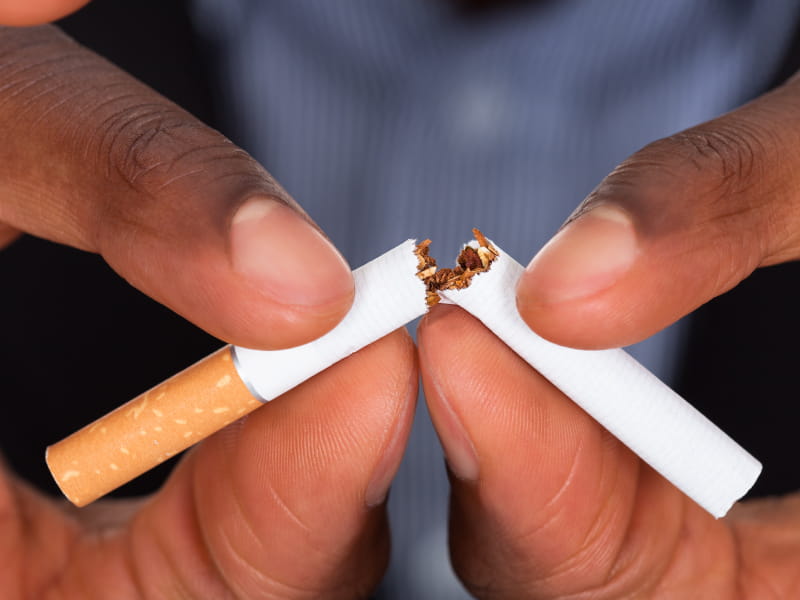Smoking habit that starts early is harder to kick
By American Heart Association News

The younger people are when they first light up, the harder it will be to stop smoking as an adult, according to a study spanning four decades.
Researchers found adolescents who smoked the most and children who started smoking at younger ages were more likely to be daily smokers in their 20s – and less likely to quit smoking by their 40s.
"Based on our data coupled with a variety of other evidence, we found childhood smoking leads to adult smoking," lead author David Jacobs Jr. said in a news release. Jacobs is the Mayo Professor of Public Health in the Division of Epidemiology and Community Health at the University of Minnesota in Minneapolis. "Cigarette smoking, even experimentally, among children of any age should be strongly discouraged."
The research, published Wednesday in the Journal of the American Heart Association, uses information from children and adolescents who were ages 6 to 19 in the 1970s to 1980s, with follow-up information from many of them as recently as 2018.
The more than 6,600 participants from Finland, Australia and the United States were followed from childhood into middle age as part of the International Childhood Cardiovascular Cohort Consortium.
Children and adolescents who only tried it a few times were more likely to smoke as adults. And early smokers often maintained the habit: 50% of those who first tried smoking between ages 6 and 12 smoked daily during their 20s compared with 8% who first tried it at age 18 or 19. Only 2.6% of participants who took up smoking after their 20s smoked in their 40s.
Jacobs said the results can be extrapolated to other countries as well.
"Even in low-income and developing countries, the societal reinforcement of smoking, the basic addictive qualities of nicotine, and the maturation of children and children's judgment through adolescence are universal," he said. "As children mature through adolescence, they may have developed a better ability to resist impulses and to reject social pressures."
He said the results highlight the need for anti-smoking campaigns like Tobacco 21, a national movement to restrict all sales of tobacco products to people under age 21."
"Cigarette smoking," Jacobs said, "is an avoidable health risk, and its seeds are in childhood."
If you have questions or comments about this story, please email [email protected].





